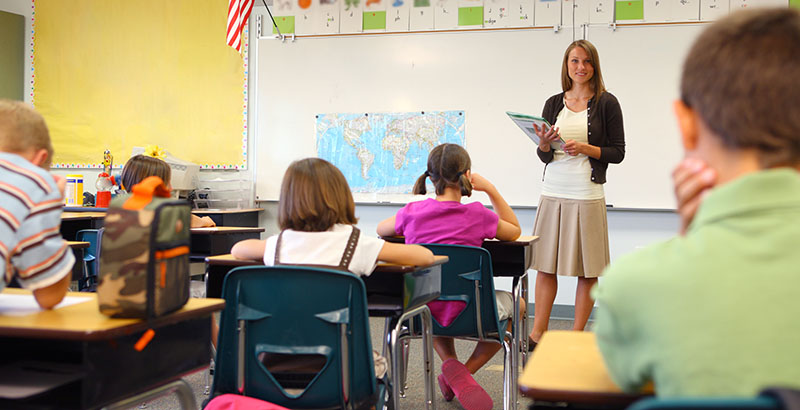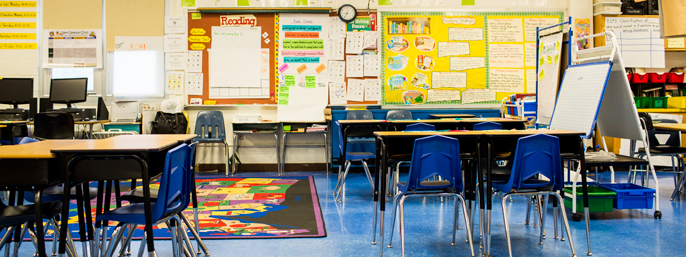Variables to Take Into Consideration in Deciding On Private College: Recognizing What Each Institution Has to Deal for Your Youngster's Growth
Selecting an independent school for a child involves careful consideration of multiple factors. Parents should assess the academic curriculum and training ideologies of numerous institutions. They need to additionally explore after-school activities that can improve their youngster's experience. Additionally, recognizing the college's culture and worths is vital for placement with household beliefs. As economic implications play a considerable duty, it is essential to evaluate tuition prices versus available scholarships. Just how do these elements shape a youngster's development path?
Academic Curriculum and Training Ideology
When selecting an independent school, understanding the scholastic educational program and mentor philosophy is crucial, as these elements significantly affect a youngster's educational experience. Parents should investigate the college's method to mentor and the topics used, as this can vary substantially among institutions. Some colleges might embrace a conventional curriculum focused on core subjects, while others may stress project-based understanding or interdisciplinary research studies.
Additionally, the mentor approach can shape classroom dynamics and trainee engagement. Schools that prioritize a student-centered approach often foster vital thinking and partnership, while those with a more organized setting may focus on self-control and foundational abilities.
Extracurricular Activities and Enrichment Programs

Relevance of Diverse Activities
While academic excellence is usually prioritized secretive institutions, the relevance of diverse tasks, consisting of after-school activities and enrichment programs, can not be overemphasized. These tasks play a crucial function in a child's holistic development, supplying opportunities for creativity, critical reasoning, and synergy. Taking part in different pursuits allows students to explore their rate of interests, find brand-new interests, and create crucial life abilities, such as time management and self-control. Furthermore, diverse tasks can promote a sense of belonging and neighborhood, improving the overall institution experience. By joining clubs, sporting activities, and imaginative endeavors, trainees not just improve their education and learning yet additionally produce memorable experiences that add to their individual growth. Diverse tasks are important to cultivating well-shaped individuals.
Effect On Social Skills
Exactly how do extracurricular tasks and enrichment programs affect a child's social abilities? These programs provide vital opportunities for youngsters to communicate with peers outside of the standard classroom setup. Participating in arts, clubs, or sports promotes interaction, problem, and team effort resolution. Youngsters find out to navigate diverse social settings, boosting their capability to develop and create relationships compassion. In addition, taking part in various tasks urges positive self-image, as children handle new difficulties and duties. As they team up on jobs or complete in groups, they likewise acquire beneficial experience in leadership and teamwork. Eventually, a rich range of extracurricular offerings contributes substantially to a kid's social growth, preparing them for future social communications in both personal and scholastic contexts.
School Society and Worths
Recognizing the school society and worths is essential for moms and dads evaluating exclusive education and learning options, as these components substantially affect a youngster's overall experience. Each organization symbolizes special viewpoints, customs, and social norms that shape pupils' day-to-days live. For circumstances, a college that highlights inclusivity might cultivate a supportive setting, motivating kids to establish empathy and regard for diverse backgrounds. Conversely, institutions that prioritize scholastic excellence may develop an affordable ambience, motivating students to go for high success.
The positioning of a school's worths with a household's ideas can enhance a kid's sense of belonging, enhancing positive behaviors and perspectives. Moms and dads need to investigate the school's goal statement, assess its corrective plans, and observe pupil communications to gauge the pertinent culture. Ultimately, a school's culture and values considerably affect not only academic success however likewise individual growth, outfitting kids with important life abilities for their future.
Class Dimension and Student-Teacher Ratio
Class size and student-teacher ratio play a crucial duty in the academic experience supplied by personal colleges. Smaller classes frequently result in enhanced specific focus, promoting far better pupil engagement and understanding. Research suggests that these elements can significantly impact finding out outcomes, making them crucial considerations for parents.
Benefits of Smaller Sized Classes
Smaller class sizes considerably improve the academic experience by cultivating more customized attention from educators. In these atmospheres, teachers can tailor their direction to fulfill private trainee demands, permitting a much deeper understanding of the material. With less students, educators can a lot more easily recognize those who may be having a hard time and give instant assistance. This close communication can cultivate more powerful relationships in between teachers and pupils, producing a helpful ambience for finding out. Furthermore, smaller courses commonly advertise higher participation, as pupils might feel extra comfortable articulating their concerns and thoughts. This vibrant encourages joint discovering and enhances general class interaction. Inevitably, the advantages of smaller courses contribute extremely to a well-shaped instructional experience that prioritizes trainee development and development.
Effect On Understanding Outcomes
The advantages of smaller sized courses prolong beyond personalized interest, considerably affecting learning results. Research study constantly shows that a lower student-teacher proportion promotes boosted engagement, permitting instructors to tailor instruction to private demands. This atmosphere motivates active participation, vital thinking, and much deeper understanding of the material. In smaller setups, instructors can better determine and attend to learning spaces, causing boosted scholastic performance. Grade School Peoria. Furthermore, pupils often feel extra comfortable revealing their ideas and asking questions, which can better enhance the learning experience. Alternatively, bigger course dimensions might limit interaction and comments, possibly hindering student growth. As an outcome, when reviewing independent schools, households should think about course dimension and student-teacher ratios as significant variables affecting their youngster's educational success
Area Involvement and Parental Participation
How can community interaction and adult participation boost the academic experience in private schools? These elements play a crucial duty in improving the discovering setting. When parents actively participate in school tasks, they cultivate a feeling of belonging and support amongst students. This participation can take various kinds, such as offering for occasions, participating in meetings, or signing up with boards, which not just enhances the school area but additionally enhances communication between instructors and family members.
Area engagement expands this assistance by linking the school with regional companies, services, and social organizations (Kindergarten). Such partnerships supply pupils with unique understanding possibilities, including workshops and internships, which add to their overall development. In addition, colleges site here that prioritize these links frequently create a more comprehensive atmosphere, enabling varied viewpoints to be shared. Eventually, community interaction and parental involvement offer to produce a supportive and joint environment that adds favorably to students' academic and social success
Financial Considerations and Scholarships
Navigating the monetary landscape of private schools can be a complex process for households. Tuition costs differ substantially, frequently affected by factors such as location, centers, and the school's reputation. Family members have to assess their economic circumstance, considering not just tuition yet additionally additional expenditures like uniforms, costs, and after-school activities.
Numerous personal institutions supply scholarship programs targeted at drawing in diverse trainee populations - Private School. These scholarships can you could try here relieve monetary concerns and make top quality education obtainable to households with varying earnings degrees. It is crucial for parents to inquire regarding the schedule of need-based and merit-based scholarships and comprehend the application processes involved
Furthermore, some institutions offer versatile settlement strategies that can reduce immediate monetary pressures. By reviewing all economic elements and discovering scholarship possibilities, households can make informed choices that straighten with their academic goals and budgetary constraints.
Regularly Asked Questions
How Do Institutions Assistance Pupils With Knowing Disabilities?
Institutions support pupils with discovering disabilities with personalized education strategies, specialized training techniques, and added sources. They frequently offer customized interventions, access to sustain personnel, and comprehensive atmospheres to foster psychological and academic development.
What Is the School's Technique to Discipline and Behavior Monitoring?
The school's method to self-control and actions management stresses positive support, clear assumptions, and corrective methods. Team actively involve pupils in conversations concerning habits, fostering a helpful setting that motivates individual obligation and liability.
How Do Colleges Take Care Of Trainee Changes, Such as Moving to Greater Grades?
Schools commonly supply organized assistance throughout pupil modifications, including orientation programs, mentorship chances, and customized scholastic planning. These procedures intend to ease stress and anxiety, promote change, and warranty students are gotten ready for the obstacles of higher grades.
What Are the School's Plans on Technology Use in the Class?

Exactly How Do Institutions Evaluate Student Development and Supply Responses to Parents?
Schools assess pupil progress via regular analyses, consisting of tests, tasks, and classroom engagement. Feedback is supplied to parents by means of transcript, parent-teacher conferences, and online websites, guaranteeing continuous interaction regarding each youngster's academic advancement.
